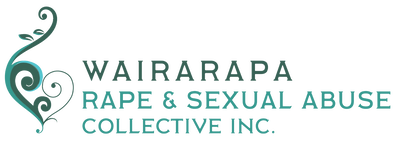Wairarapa Rape & Sexual Abuse Collective Inc.
0800 614 614 (24/7) / 06 370 8446
Floor 3 Departmental Building, 35 Chapel Street, Masterton
Office hours 8.30 AM - 2.30 PM Monday - Friday. Please call as appointments are preferred.
Stages of Healing from Sexual Abuse
Although most of these stages are necessary for every survivor, a few of them - the emergency stage, remembering the abuse, confronting your family and forgiveness - are not applicable for every person.
The Decision to Heal
Once a person recognises the effects of sexual abuse in their life, they need to make an active commitment to heal. Deep healing happens only when that person chooses it and are willing to change themselves.
The Emergency Stage
Beginning to deal with memories and suppressed feelings can throw a person's life into utter turmoil. Remember, this is only a stage. It won’t last forever.
Remembering
Many survivors suppress all memories of what happened to them as children. Those who do not forget the actual incidents often forget how it felt at the time. Remembering is the process of getting back both memory and feeling.
Believing it Happened
Survivors often doubt their own perceptions. Coming to believe that the abuse really happened and that it really hurt them is a vital part of the healing process.
Breaking the Silence
Most adult survivors kept the abuse a secret in childhood. Telling another human being about what happened is a powerful healing force that can dispel the shame of being a survivor.
Understanding that it wasn't Your Fault
Children usually believe abuse is their fault. Adult survivors must place the blame directly where it belongs - on the shoulders of the abuser(s).
Making Contact with the "Child Within"
Many survivors have lost touch with their own vulnerability. Getting in touch with the "child within" can help them feel compassion for themselves, more anger at their abuser, and greater intimacy with others.
Trusting Yourself
The best guide for healing is our own inner voice. Learning to trust their own perceptions, feelings and intuitions forms a new basis for action in the world.
Grieving and Mourning
As children being abused, and later as adults struggling to survive, most survivors haven’t felt their losses. Grieving is a way to honour their pain, let go, and move into the present.
Anger - The Backbone of Healing
Anger is a powerful and liberating force. Whether a person needs to get in touch with it or have always had plenty to spare, directing their rage squarely at their abuser, and at those who didn’t protect them, is pivotal to healing.
How Do We Recover
|
Healing Adult
|
Stages of Healing
from
Child Sexual Abuse
|
Location:
|
|
Website created by Cheeky Upstart. 2021



